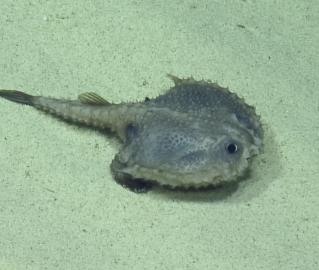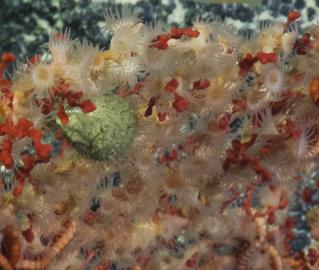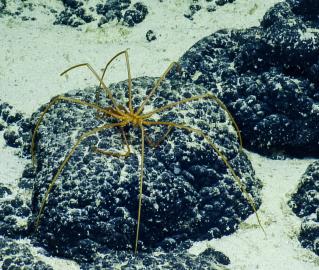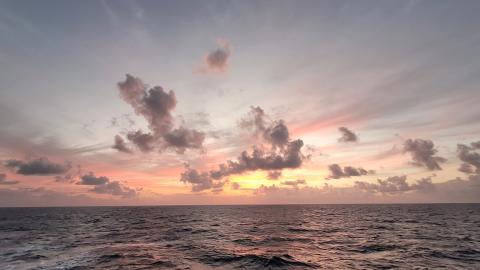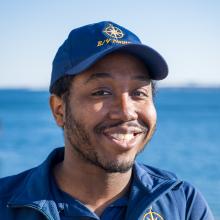
Daniel Price
Tell us about your work/research. What kinds of things do you do?
I am an interpretive assistant at Bryce Canyon National Park in Utah. I research, develop, and present interpretive programs in alignment with Bryce Canyon's themes along with other park rangers. I engage visitors in understanding the complex geology that created the park and its history by utilizing public speaking techniques and physical aids. Most of my time is spent staffing information desks, disseminating information to travelers from all over, swearing in Junior Rangers, monitoring visitor activity while roving trails, and contributing to the park’s digital outreach.
What sparked your initial interest in your career?
Growing up it was always my dream to be an astronaut and as such I based my interests around it. That passion for learning and discovery, the exchanging of new ideas that change how we see the world, is so important and pleasurable for me. I studied hard in high school and enrolled in college at West Virginia University (WVU) in 2018 because the school offered both aerospace engineering and geology. I started out as an engineering major then switched my sophomore year to geology. I wanted to combine my love of the outdoors and exploration and scientific curiosity into one focus. From then on I conducted undergraduate research in the geology department and participated in a National Science Foundation Research Experience for Undergraduates. Originally set to travel to Greenland but was changed because of COVID-19, I traveled to the Rockies for field work on Precambrian bedrock that featured evidence of ancient earthquake ruptures. After graduating in 2022 I was recruited as an intern at Bryce Canyon National Park via the Scientists in Parks program run by AmeriCorps and the National Park Service. In this position, I found a calling as a science communicator, and it was this and the pursuit of discovery that drew me to OET. After a few years of continuing this journey of STEM education and professional experience, I plan to attend graduate school for oceanography or planetary science. Either path will be surely exciting!
Who influenced you or encouraged you the most?
My parents nurtured my curiosity for the world from a young age. They took me often growing up to the Smithsonian Museums and the National Aquarium and helped me with science fairs. When I was a kid, they even took me to see a space shuttle launch! From then on, my passion for learning and exploration encouraged me to excel in school and in college. I have my family to thank for where I am today.
What element of your work/study do you think is the most fascinating?
Some of the most fascinating things about my work is having the opportunity to meet people from all around the world and to explore natural wonders all across the United States. Every day yields something new and exciting no matter how big or small. I learn from people about where they come from and what brought them all the way to Bryce Canyon to learn from me and other park rangers about the park's wonders. Having a global perspective is becoming increasingly vital in today's world. We need to understand each other and our planet better so we can pave a brighter future.
What other jobs led you to your current career?
I have interests that lie outside of the main career goals that have made me either adjust or subvert my plans. It was at the bottom of my list of goals to work in a national park or as a backcountry guide. Having diverse interests opened up the doors for robust professional development experiences. During the summer of 2022, I was a backcountry guide for Adventure WV, the outdoor recreation branch of WVU. I carried on what I had learned in Boy Scouts into a job where leadership, teamwork, flexibility, and organization were the keys to executing an exciting and memorable trip for my participants. This job in turn proved noteworthy when I applied to be a Scientists in Parks intern. It has been a personal goal of mine to visit every national park in the U.S., so I figured why not turn it into a job? Being my first gig out of college, I gained and improved upon valuable skills such as: public speaking, research and development, science communication, and stewardship. I even volunteered to dig up dinosaur bones! My outdoor interest and experiences brought me where I am with OET today, and I seek to carry them forward into a career in education and STEM research.
What are your degrees and certifications?
Bachelor of Science in Geology -- West Virginia University 2022; Wilderness First Aid and CPR Certification -- SOLO Wilderness Medicine School 2022; Eagle Scout 2017
What are your hobbies?
I enjoy doing almost anything outdoors, from hiking, backpacking, camping, kayaking, white water rafting and rock climbing. While in college, I found a hobby in recreational spelunking in caves across West Virginia. I am also an amateur photographer and a lover of cooking a good dinner and watching movies. Don't get me started on Star Wars!
What advice would you give someone who wants to have a career like yours?
A career path in geology can go in any direction, but don't let that scare you. Geosciences investigate all aspects of our world, from the depths of the oceans to the outer limits of space. Education, industry, academia, and research, they are all avenues for finding how all of these things interact and how they impact our lives. Leave your doors open to anything and anyone. If you work your hardest, you will be rewarded in ways you may not even imagine would be possible for you.
Expeditions
Daniel participated in the following Ocean Exploration Trust expeditions:
